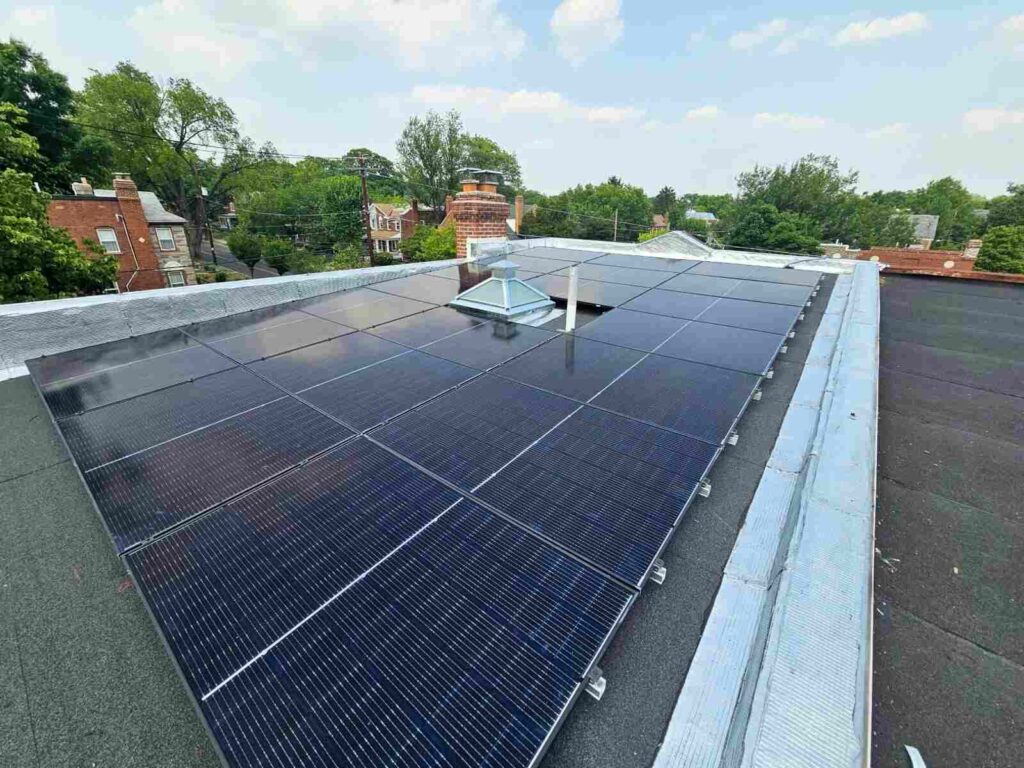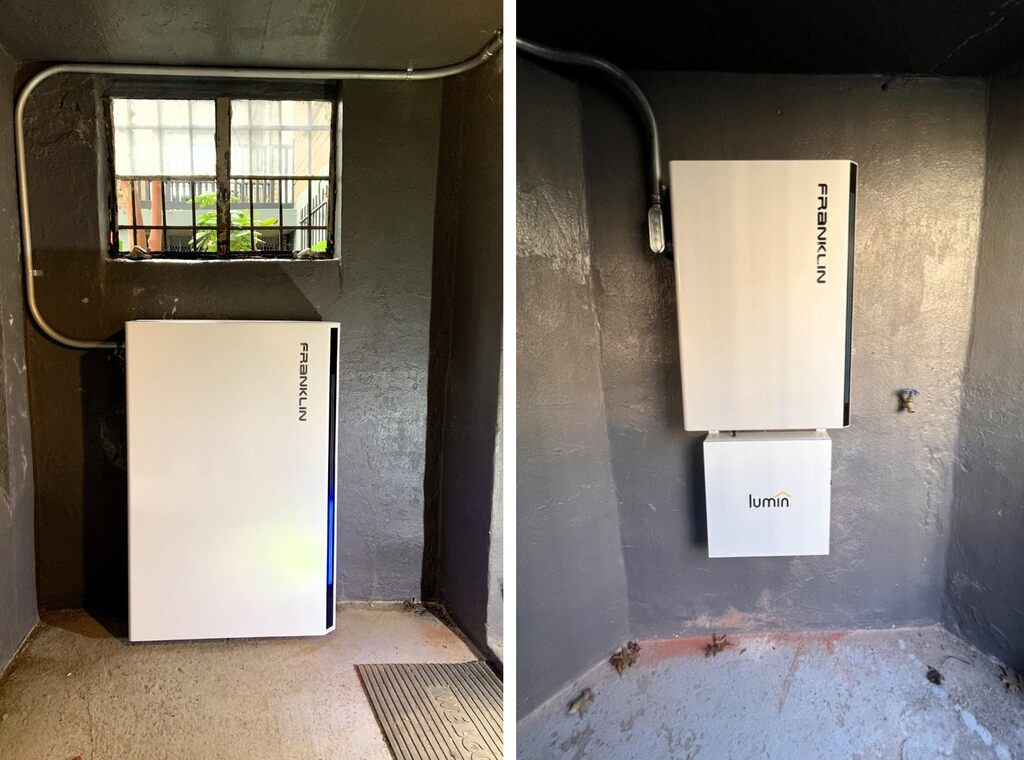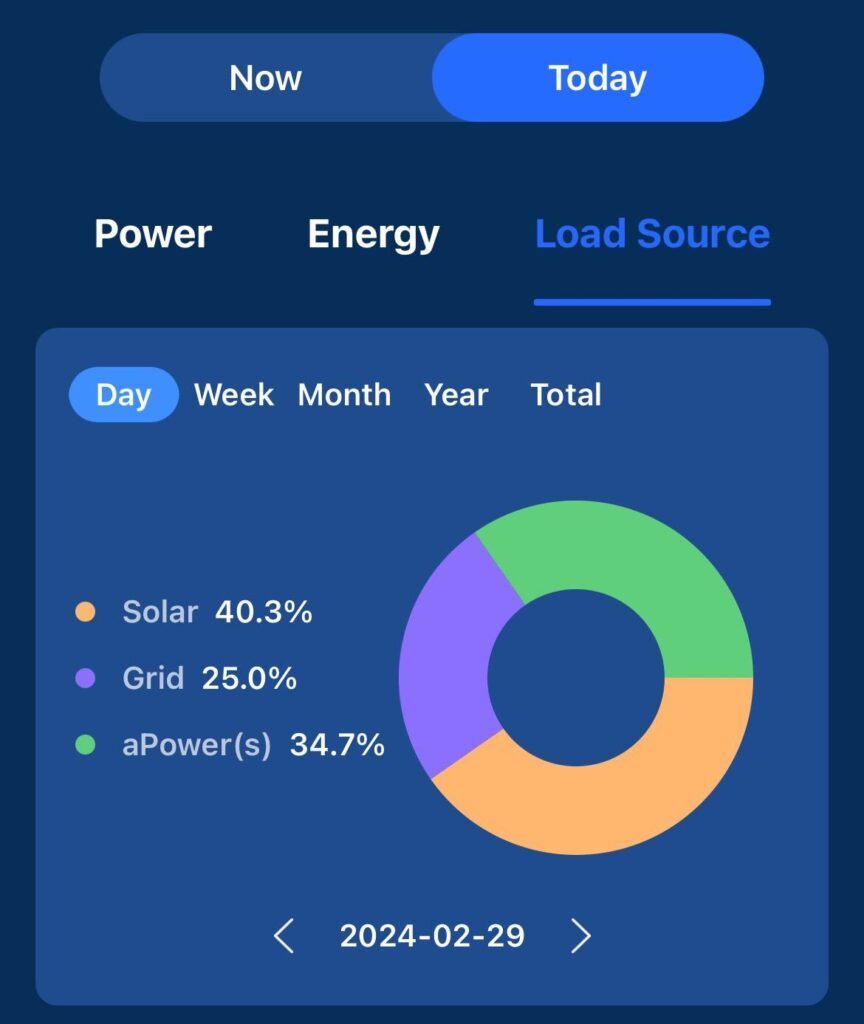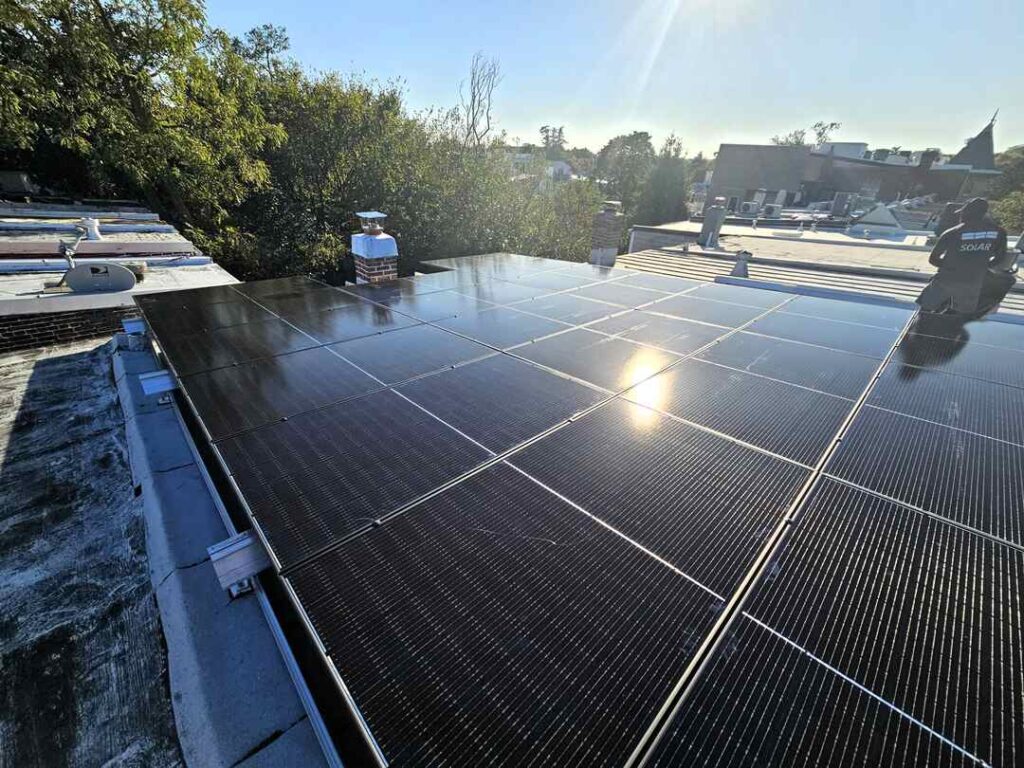
If you’ve been researching solar, you’ve probably come across the words ‘battery storage’ or ‘energy storage.’ But what do those terms mean, and do you need batteries if you go solar?
When it comes to solar, battery storage and energy storage are interchangeable terms. They both refer to devices that — you guessed it! — store energy. Here’s what that means. When your solar system converts sunlight into alternating current electricity, that electrical current goes to your home to run appliances, chargers, or whatever else needs juice. But if your panels generate more than you can use, where does that excess electricity go? Well, if you have a storage device, it goes there.
Storage devices store electrical energy as another type of energy, like chemical, mechanical, or thermal energy. And then if you need that power — at night, for example — the storage device releases it so you can keep the lights on.
There are many different types of storage technology out there, but some work better in residences and others work well for grid-scale storage. (The Office of Energy Efficiency & Renewable Energy has a great list if you want to nerd out!) In homes, you’ll typically find lithium-ion batteries, also found in phones, laptops, and electric cars.
Uprise installs lithium iron phosphate batteries (known as LFP), which are part of the lithium-ion battery family. Specifically, we install FranklinWH batteries, because they’re the safest on the market. LFP batteries do not contain volatile or flammable materials like cobalt, making them less reactive and very resistant to overheating. FranklinWH storage systems also boast high capacity and a longer lifespan than others. Uprise’s sales director Patrick has a FranklinWH system at his house and loves it. Below are pictures of his system.

How does the FranklinWH system work?
There are two main pieces of equipment in a FranklinWH energy storage system: the aPower, which is the rechargeable battery, and the aGate, which is an intelligent power management controller. The aPower has a storage capacity of 13.6 kilowatt hours, and a 12-year warranty. The aGate enables you to switch between solar power and grid power. And the FranklinWH app lets you control the system remotely.
What are some of the benefits of energy storage?
Batteries enable you to reduce your dependence on the grid, saving you money and allowing you to run your home on renewable energy rather than grid electricity, which likely comes from polluting sources. If you store power, you’ll still be able to draw on clean energy even when your panels aren’t able to generate power, such as on rainy days or at night, instead of pulling from the grid.
It’s good to think of a battery as a backup power source, like a generator. But generators often run on polluting gas or diesel, and they’re loud, while energy storage systems are sustainable and quiet.
Another benefit is you’ll gain another level of system monitoring. With every solar install Uprise performs, we provide you with access to the Enphase App, where you can check in on your panels and see how much electricity your system has generated. With the FranklinWH system, you’ll also receive access to the FranklinWH app, where you can gain insight into how much power you’re using from solar, the grid, or your aPower battery. Check out a screenshot from Patrick’s FranklinWH app below.

What happens during a power outage?
Since solar systems in the DMV are connected to the grid, they must shut down during a power outage so electrical workers won’t get hurt. However, if you have energy storage installed, your home can become its own microgrid, running off electricity from your panels and any excess in your battery. The size of your solar array and battery capacity will limit your available power — so you’ll likely want to conserve electricity even more than usual during an outage — but otherwise you can continue operating devices in your home and dodge the negative impacts of a grid outage.
How many batteries does my home need?
The number of batteries you need will depend on the size of your home and how much power you consume. Also, off-grid systems require more batteries than grid-tied systems, which are what Uprise installs. We’d be happy to talk you through how many you need, but one or two will likely be enough for typical DMV homes.
Do I need to maintain my energy storage system?
FranklinWH batteries are low maintenance. The company does recommend periodically checking the battery for corrosion. And if you want to wipe down the battery, use a soft, dry cloth. If you ever think there’s an issue with your battery, please contact Uprise; we can perform maintenance on FranklinWH batteries.
Do I need batteries to go solar?
No, you don’t need a battery storage system when you go solar. It can be nice to have, but it’s not essential. If you don’t have a battery, any excess electricity your solar panels generate will go back to the grid. Pepco, Dominion, and BGE all credit you for your excess power through what are called net metering programs (and if you go solar with Uprise, we’ll help get you set up for net metering). If you need more power than your panels generate, you’ll draw on energy from the grid.

Is battery backup for solar worth it?
Batteries can be expensive, and if you have reliable access to grid electricity, you may want to forgo purchasing a battery, at least initially.
Since they aren’t free, it’s good to think through your reasons for purchasing one or not. If you have an electric car, for example, you may benefit from a battery as you’ll be able to store more clean power to charge your car. Or if you have crucial medical devices that need to keep running in case of a power outage, batteries can provide peace of mind.
You may be able to benefit from rebates or tax credits if you buy a battery. For example, energy storage systems are now included in the federal solar tax credit thanks to the Inflation Reduction Act.
There’s also sustainability concerns to consider. Mining for battery materials such as lithium is energy intensive and can pollute local environments. Although lithium mining results in less carbon emissions than fossil fuels, it isn’t perfectly green. And while lithium-ion batteries can be recycled, often they aren’t — not even 5% are recycled in the United States. Scientists at organizations like the National Renewable Energy Laboratory are working to improve recycling processes and promote battery repurposing. Ultimately, batteries are an imperfect solution, but aid in the clean energy transition as we as a society work to utilize more renewables.
I’ve got more questions about energy storage!
Get in touch with the Uprise team at (202) 280-2285 or online. We’d be happy to talk with you about energy storage, and walk you through your options if you feel batteries would be a good fit for you.
